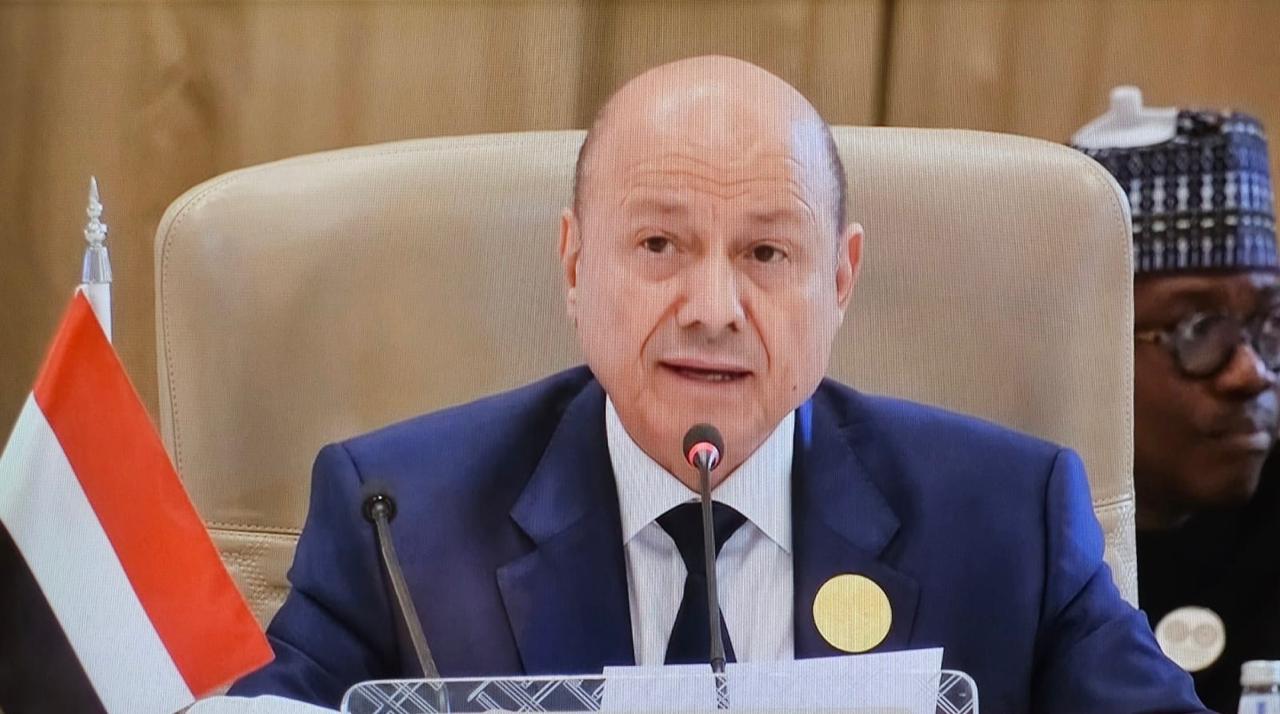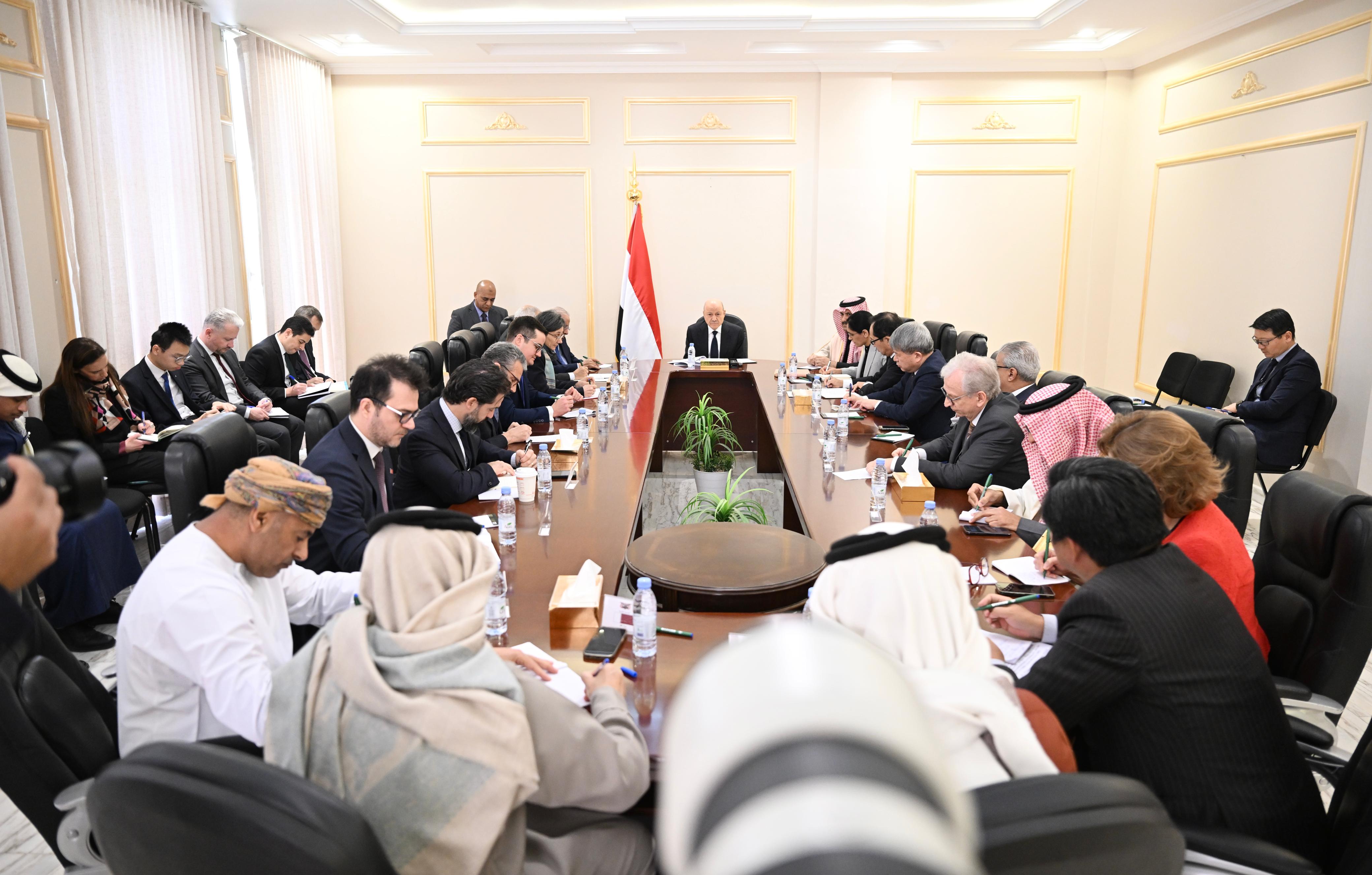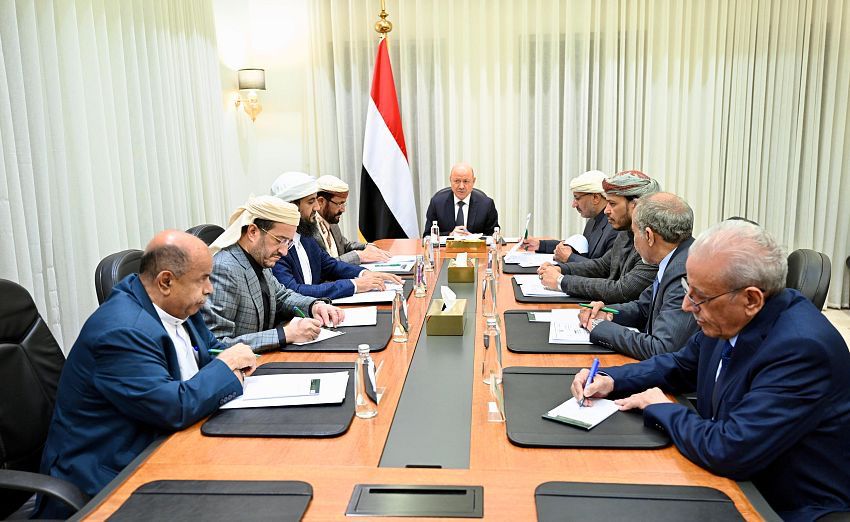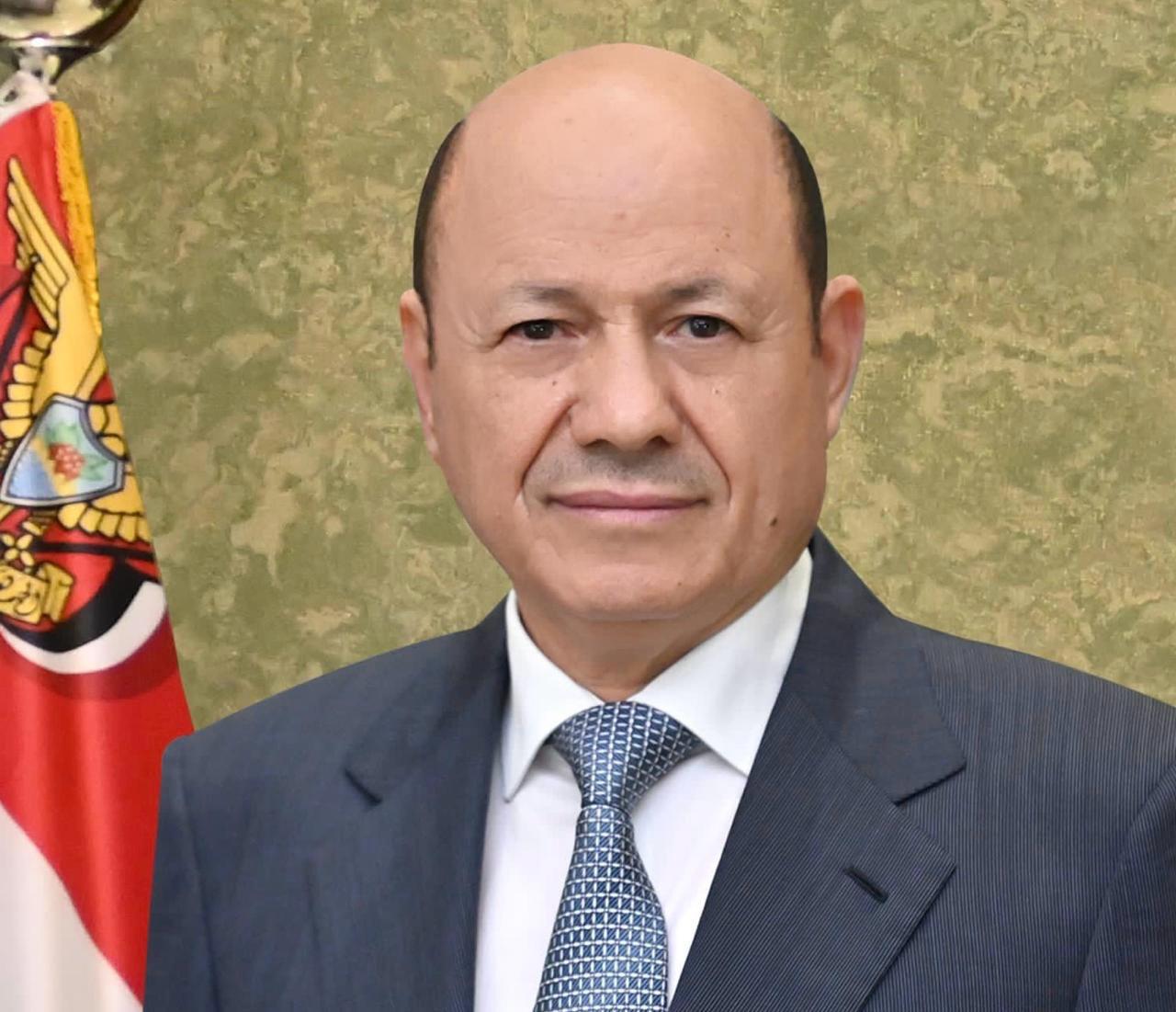
President Al-Alimi: Strengthening the Palestinian Position Begins with a Unified Arab Stance Including Deterring Terrorist Militias
Riyadh
His Excellency President Dr. Rashad Mohammed Al-Alimi, President of the Presidential Leadership Council, reaffirmed Yemen's steadfast position in support of the Palestinian people and their legitimate right to resist occupation and establish an independent state. He stressed that strengthening the Palestinian national position and enhancing the prospects for a two-state solution begins with reinforcing the Arab stance, promoting internal cohesion, and deterring armed militias in the region.
In a speech delivered at the Arab-Islamic Follow-Up Summit convened today in Riyadh, the President of the Presidential Leadership Council reiterated Yemen's condemnation of the Israeli aggression against Lebanon. He expressed full support for the Lebanese government's efforts to achieve a permanent ceasefire, enhance the role of its national institutions, and empower them to assert authority over all its territory in accordance with international legitimacy resolutions.
He stated that deterring aggressive Israeli actions cannot be achieved through proxy wars, but rather through resolving disputes and internal conflicts, supporting national Arab states and their identities, and ensuring social peace in the face of armed militias. He emphasized the importance of implementing international legitimacy resolutions without selectivity or procrastination.
In this context, the President reiterated the Yemeni government's stance rejecting the practices of the Houthi terrorist militias, which have exacerbated the economic and living conditions of the peoples of the region. He noted that these actions have led to the militarization of seas and regional waters, serving the interests and aggressive expansionist ambitions in the region.
The President of the Presidential Leadership Council highlighted the strategic progress made by the joint Arab-Islamic summit over the past year by fostering integrated Arab-Islamic cooperation, reinforcing the principle of a two-state solution, and providing it with increased political and diplomatic momentum. Furthermore, he underscored the importance of mobilizing international support in a manner that meets the aspirations of the Palestinian people and acknowledges their legendary resilience.
He stated that the ministerial committee formed a year ago successfully enhanced the unprecedented diplomatic presence of the Palestinian cause in international forums. This effort culminated in the United Nations General Assembly's decision to grant Palestine membership as a state in the UN. Additionally, it led to the announcement by the Kingdom of Saudi Arabia, in collaboration with international partners, of the launch of the international coalition to implement the two-state solution.
He added, "The joint Arab-Islamic summit has established a new approach to international diplomacy, one that is based on accumulation, integration, and realism. This approach aims to curb expansionist projects, hegemony, and violence."
His Excellency stressed the importance of further strengthening this experience and making greater use of its collective mechanisms, as this will contribute to accelerating regional and international integration processes that protect the interests and national security of our peoples.
In this regard, His Excellency called for expanding the good efforts of Arab diplomacy, activating the Arab Peace and Security Council and the Arab Safety Network, and integrating them comprehensively with the efforts of the joint ministerial committee. This integration should not be limited to the central Palestinian cause but should also extend to addressing regional issues in countries affected by wars and armed conflicts, supporting peace-building efforts, and promoting knowledge and reconstruction projects.
The following is the speech of the President of the Presidential Leadership Council at the Joint Arab-Islamic Summit:
“In the name of Allah, the Most Gracious, the Most Merciful
My brother, His Royal Highness Prince Mohammed bin Salman bin Abdulaziz, President of the Extraordinary Arab and Islamic Summit,
Your Majesties, Excellencies, and Highnesses,
His Excellency Ahmed Aboul Gheit, Secretary-General of the Arab League,
His Excellency Hussein Ibrahim Taha, Secretary General of Organization of Islamic Cooperation,
At the outset, I would like to extend my sincere thanks and appreciation to the brotherly Kingdom of Saudi Arabia, led by my brother, the Custodian of the Two Holy Mosques, King Salman bin Abdulaziz, and His Royal Highness Crown Prince Mohammed bin Salman, for their generous hosting of this summit, and for their unwavering positions in support of the issues of our nation, defending its identity, and safeguarding its national security.
Your Majesties, Excellencies, and Highnesses,
It has been a full year since the convening of the extraordinary Arab-Islamic summit regarding the brutal Israeli aggression, which continues to this day against the occupied Palestinian territories. The aggression persists with killings and displacement and has even escalated to military operations targeting Lebanon’s sovereignty, placing the entire region on the brink of military escalation, unprecedentedly threatening our national and regional security.
Your Majesties, Excellencies, and Highnesses,
The Republic of Yemen reaffirms its steadfast stance alongside the Palestinian people and supports their legitimate right to resist occupation and establish their independent state. Yemen also condemns the Israeli aggression against Lebanon and fully supports its government’s efforts toward a permanent ceasefire, enhancing the role of its national institutions, and enabling them to exercise sovereignty over its entire territory in accordance with international legitimacy.
We also reiterate our rejection of the practices of the terrorist Houthi militias, which have exacerbated the deterioration of economic and living conditions for the people in the region, leading to the militarization of our seas and regional waters in service of hostile expansionist interests in the region.
Your Majesties, Excellencies, and Highnesses,
It would be fair to acknowledge the importance of the strategic progress made by the joint Arab-Islamic summit over the past year. This progress has framed a collaborative Arab-Islamic approach, strengthened the two-state solution principle, provided it with additional political and diplomatic momentum, and rallied international support in its favor, aligning with the aspirations of the Palestinian people and their legendary resilience.
The ministerial committee formed a year ago succeeded in bolstering the unprecedented diplomatic presence of the Palestinian cause in international forums. This achievement culminated in the United Nations General Assembly’s decision to grant Palestine membership as a state in the UN. Furthermore, Saudi Arabia, in cooperation with European partners, announced the launch of the International Coalition to implement the two-state solution.
There remains a unified Arab and Islamic position on the urgent need to halt the aggression against the Palestinian people and to provide them with immediate assistance as a top priority. Yet, we still need to exert more effort and pressure to achieve these goals, including incorporating the Lebanese file within diplomatic initiatives to ensure the sovereignty and independence of this dear nation.
Your Majesties, Excellencies, and Highnesses,
The joint Arab-Islamic summit has established a new approach to international diplomacy based on accumulation, integration, and realism—a path that can curb projects of expansion, hegemony, and violence.
It is, therefore, essential to reinforce this experience and make greater use of its collective mechanisms to accelerate regional and international integration to protect the interests and security of our peoples.
We also call for the expansion of Arab diplomatic efforts, the activation of the Arab Peace and Security Council, and the Arab Safety Network, integrating them with the efforts of the joint ministerial committee. This integration should not be limited to the central Palestinian cause but should also extend to addressing regional issues in countries affected by wars and armed conflicts, supporting peace-building efforts, and promoting knowledge and reconstruction projects.
Your Majesties, Excellencies, and Highnesses,
Historical experience has taught us that strengthening the Palestinian national position and enhancing the chances of a two-state solution begins with fortifying the Arab position and strengthening its internal cohesion.
Deterring Israeli aggressive behavior cannot be achieved through proxy wars but rather by resolving inter-Arab disputes, supporting the national Arab state, its identity, and social peace in the face of armed militias, and applying international legitimacy resolutions without selection or procrastination.
Once again, I extend all thanks to our brotherly Kingdom for this pioneering effort. May Allah guide us all in the service of our peoples, their security, stability, and prosperity.
Peace, mercy, and blessings of Allah be upon you.”

President Al-Alimi: Developments on Ground Are Promising and Refute Claims of a Vacuum and Worst-Case Scenarios
His Excellency President Dr. Rashad Mohammed Al-Alimi, President of the Presidential Leadership Council, said that state institutions are making tangible progress in unifying security and military decision-making


